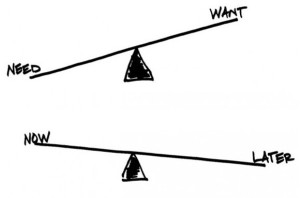Podcast: Play in new window | Download (Duration: 19:42 — 18.0MB) | Embed
How does your WHY help you find your way? Here are four insights.
- Knowing your WHY allows you to focus more on Others and less on Yourself. Purpose works from the inside out. This requires time and a lot of introspection. There are no short cuts. The sooner that you can find your WHY the sooner you will be able to focus on others.
- Living out your WHY gives you confidence that is attractive to others. Have you ever noticed people who walk into a room and you could feel their presence? They bring an energy into the room. This is not ego or arrogance. It’s purpose. People with purpose have an air of distinction about them.
- The more you live your WHY the more you layer it. People’s individual strengths and purposes are always connected. Your why is fuel for your strengths and your strengths are the way to fulfill your why. Every time you use your strengths you are fulfilling your purposes
- The more you layer your WHY, the more impact it has on others. Purpose has a compounding effect upon our life. Doing the right thing, with the right people, over time, gives you a huge significance return, and ultimately a giant significance reputation. Keep acting according to your purpose and doing significant acts day by day, year by year, decade by decade, and your impact will keep increasing.
How do you find your WHY? Margie Warrell contributing writer to Forbes Magazine offers 4 key questions to assist in discovering your WHY!
- What makes you come alive? This is a question about what ignites a fire in your belly? This is more than your favorite dish of food or favorite team in sports. This is about a bigger passion to leave a legacy. This about connecting your strengths and energies to a cause that is bigger than you but it aligns with your passions.
- What are your innate strengths? Have your ever taken the time to discover what your true strengths are? There are many tools available to assist in this discovery. Beyond the mere discovery of what your inner strengths are, having a good coach to assist you in seeing how these traits coupled with your present thinking can take your leading to a higher level is crucial. In the show notes there is a link that will give you insight to Executive Coaching from Shepherds Advantage.
- Where do you add the greatest value? Doing work that you are good at but yet you loathe it, is not an effective pathway to happiness. Ask yourself this question to assist in knowing where you can add the greatest value; “What problems do I enjoy solving?” The answer will guide you to a correct pathway of fulfillment and happiness in your life.
- How will you measure your life? The old adage is true; “If you do not take a stand for something your will fall for anything?” How do you want to be remembered? They say that people will only give one good paragraph that describes your life when they eulogize you – so start writing it now! What matters the most in your life right. If your life and possessions started to diminish today, how would you prioritize these losses?The purpose of life is not just to be happy. It is to be useful, to be honorable, to be compassionate, to have it make a difference that you have lived and lived well – Ralph Waldo Emerson
LINKS
Shepherds Advantage Leadership Podcast is now on iTunes – SUBSCRIBE
FREE GIFT – “The Art of Balancing Candor With Care” – Click on the icon at the bottom of the page
Executive Coaching Premier Service – Private message me for details on this customizable service
Music: “Gratitude Mood” by David Arivett. You can learn more about his music by clicking on his name. THANKS DAVID!


